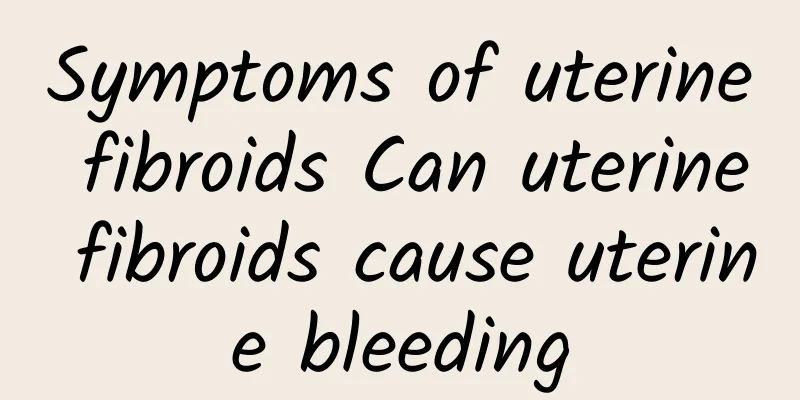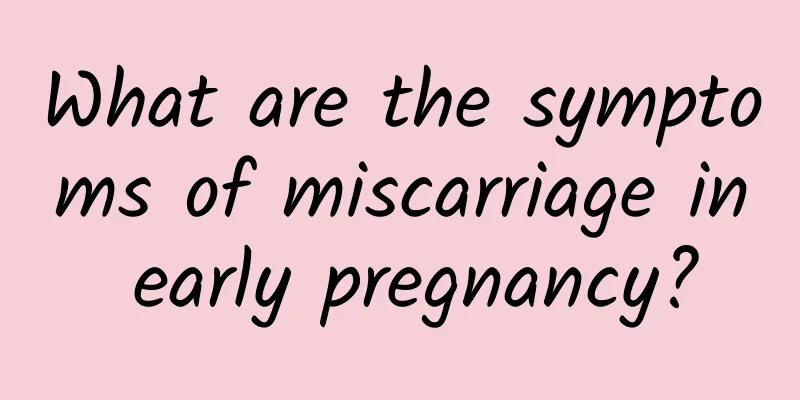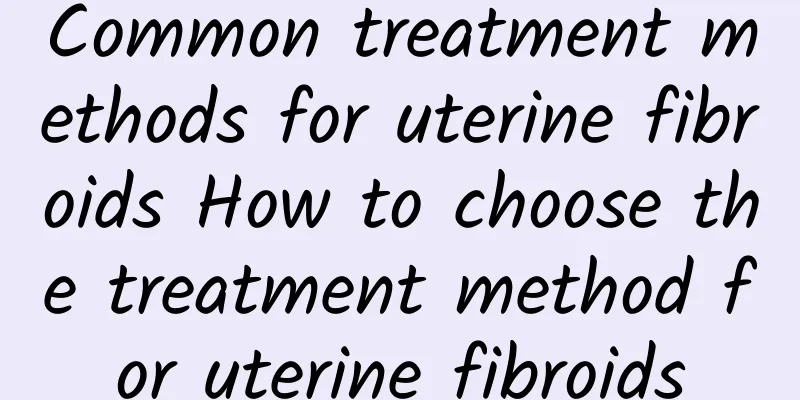Immunotherapy for recurrent miscarriage

|
In modern life, many women suffer from multiple miscarriages due to various internal or external factors, and finally suffer from habitual miscarriage. Many habitual miscarriages can generally be cured if the root cause is found, and habitual miscarriages without a clear cause are generally treated with immunotherapy. Let's take a closer look at the immunotherapy for habitual miscarriage. Targeted treatment: Active immunotherapy Since Beer and Taylor founded the active immunotherapy for primary habitual abortion in 1981, a large number of clinical experiments at home and abroad over the past 28 years have shown that the success rate of active immunotherapy for patients using the husband's or third-party lymphocytes is as high as 55%-100%. This treatment effect has attracted high and widespread attention in the perinatal medicine community. From an immunological perspective, a successful pregnancy must prevent harmful immune responses. People have found that autoimmune diseases that are mainly based on cell-mediated immunity, such as rheumatoid arthritis, will be alleviated to a certain extent during pregnancy, while autoimmune diseases that are mainly based on humoral immunity, such as systemic lupus erythematosus, will further deteriorate during pregnancy. These all indicate that during normal pregnancy, the mother's humoral immunity is dominant. Clinical research data also found that Th1 cell immune cytokines are dominant in the serum of patients with primary habitual abortion. Therefore, it can be speculated that the imbalance of Th2 humoral immune cytokines and Th1 cell immune cytokines is related to pregnancy failure. Active immunization can adjust the balance between these two cytokines and change the patient's pathology and physiology; in addition, active immunization induces humoral immunity to produce blocking antibodies or factors that can block the mother's rejection of the fetus. In addition, some immune effector cells also play an important role in primary habitual abortion. The key to successful treatment: strict attention to detail 1. Strict case screening 2. For the selected patients, some relevant special examinations are still required to further determine the cause of the disease and the next symptomatic treatment plan. 3. Preparation of immunogens and biosafety monitoring are the first and most important steps in active immunotherapy. Immunogens should be prepared on-site and their quality and biosafety should be evaluated before they can be used in human immunotherapy. 4. Real-time observation of efficacy indicators. During the treatment process, the efficacy should be observed in real time to understand the effect of the treatment and determine the best time for pregnancy, thereby ensuring the smooth progress of pregnancy. 5. Immunization should be strengthened after pregnancy. Many immunotherapy failures are caused by not continuing immunotherapy after pregnancy. This is because the level of fetal protective antibodies produced by active immunotherapy may decrease after pregnancy and can no longer protect the fetus. 6. Auxiliary treatment, such as giving appropriate progesterone to some older patients or those with low hormone levels after pregnancy to ensure the success of the pregnancy. In short, the active immunotherapy for primary habitual abortion involves not only clinical obstetrics and gynecology, but also a wide range of system engineering, including immune tolerance, immune genetics, molecular immunity, and cellular immunity. Therefore, there are strict requirements for the operation team and the hospital, and they need to obtain certification and permission from the national or military health management department. |
<<: Is immunotherapy necessary for abortion?
>>: Can Traditional Chinese Medicine Treat Miscarriage?
Recommend
The main causes of vaginitis in teenage girls
When it comes to vaginitis, many people think tha...
How to treat spontaneous abortion better
What is the best way to treat spontaneous abortio...
What is Ⅱ degree cervical erosion? Medical explanation of Ⅱ degree cervical erosion
Grade II cervical erosion indicates that the area...
Can uterine effusion be treated with Chinese herbal medicine?
Clinically, most women's uterine effusion is ...
How many days does menstruation last during pregnancy
The characteristics of pregnancy menstruation are...
Can a blood test detect cervical precancerous lesions?
In recent years, the incidence of many gynecologi...
What are the effects of cervical hypertrophy?
Cervical hypertrophy may cause adverse effects su...
The hottest in summer! Red dragon fruit is low in calories and high in anthocyanins
In the hot summer, the healthy fruit "Dragon...
Anorexia and bulimia can be cured by self-monitoring to reduce loss of control
In psychiatric outpatient clinics, anorexia and b...
In which situations should we be alert to the risk of ectopic pregnancy?
Everyone has heard of ectopic pregnancy. But how ...
Postoperative nursing care for patients with threatened abortion
The postoperative care method for patients with t...
Experts analyze the common causes of uterine adnexitis
It is very beneficial for the majority of female ...
Analysis of several common methods for treating cervical hypertrophy
It is understood that the treatment of cervical h...
Can I get pregnant with an ovarian cyst?
It is possible to get pregnant with ovarian cysts...
Is cervical precancerous lesion cancer?
Everyone must be familiar with cervical cancer. S...









